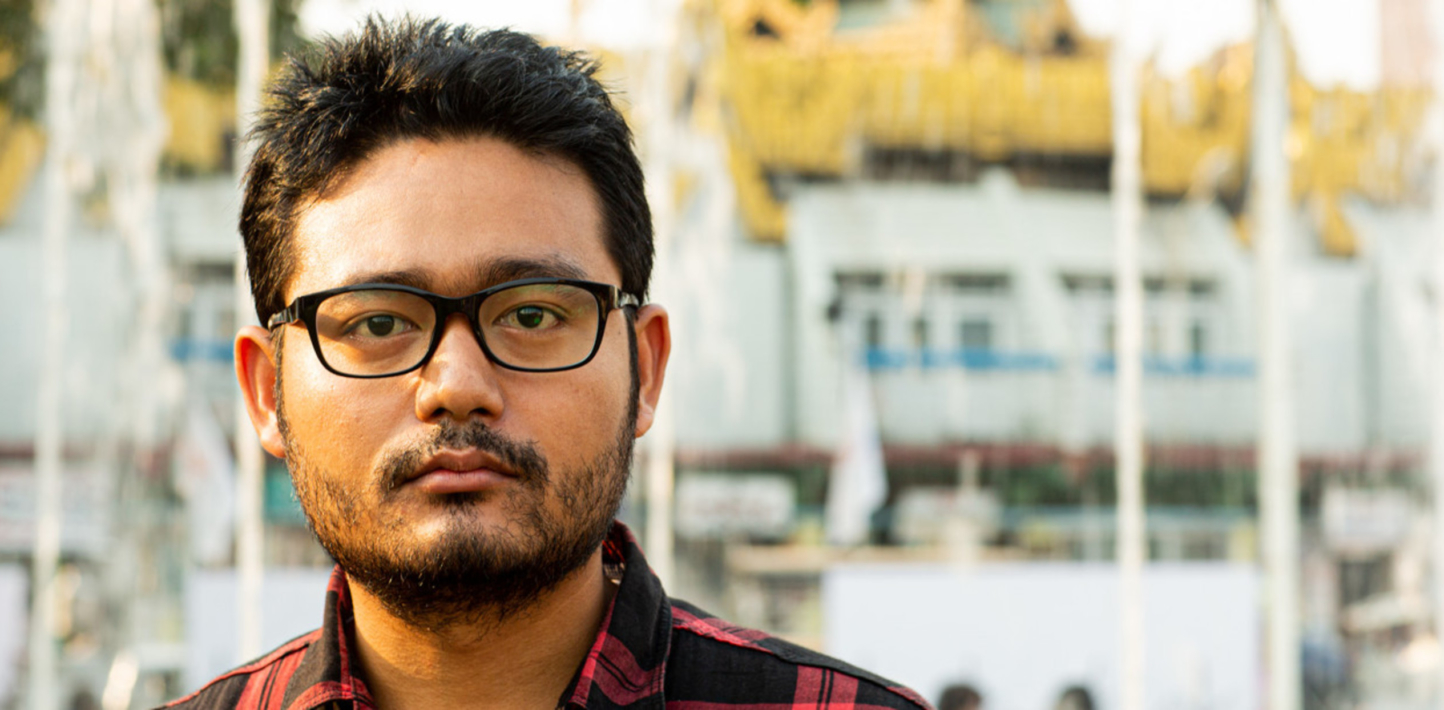Responding to the decision by the Kyauktada Township Court to convict activist and poet Maung Saungkha in connection with a peaceful protest against mobile internet restrictions in Rakhine and Chin States, Ming Yu Hah, Amnesty International’s Deputy Director for East and Southeast Asia and the Pacific, said:
“Given a choice between a 15-day prison sentence and a 30,000-kyat (US$22.50) fine, Maung Saungkha chose the latter. While this sentence may come as a relief, the fact remains that he should never have been charged in the first place.
“Maung Saungkha was charged over an act of peaceful protest in which he unfurled a banner which asked: ‘Is the internet being shut down to hide war crimes in Rakhine [State] and killing people?’ It was to mark the one-year anniversary of the mobile internet shutdown in Rakhine and Chin States, and his questions deserve answers.
“As the general election approaches and the country grapples with a surge in COVID-19 cases, the Myanmar authorities must not trample on people’s right to freely express themselves and share and access information. The internet restrictions in Rakhine and Chin States is making a critical situation far worse.
“The authorities must also urgently restore full internet access in Rakhine and Chin States, and repeal or amend all repressive laws, including Section 19 of the Peaceful Assembly and Peaceful Procession Law.”
Background
On 21 June 2020, Maung Saungkha put up a banner on an overpass in downtown Yangon, Myanmar’s largest city, in a peaceful protest marking the one-year anniversary of restrictions on mobile internet communications in parts of Rakhine and Chin States. The banner read: “Is the internet being shut down to hide war crimes in Rakhine [State] and killing people?”
On 7 July, the authorities charged him under Section 19 of the Peaceful Assembly and Peaceful Procession Law, which imposes criminal penalties for failing to provide advance notice for an assembly and carries up to three months in prison and/or a fine.
In response to escalating armed conflict between the Myanmar military and the Arakan Army, an ethnic Rakhine armed group, the authorities first imposed the mobile internet restrictions in nine townships in Rakhine and Chin States in June 2019, only permitting voice calls and text messages. The restrictions were temporarily lifted in five townships on 1 September 2019, but the government re-imposed the restrictions on 3 February 2020. They were removed in Maungdaw township on 2 May, leaving eight townships still under restrictions. On 1 August 2020, the authorities allowed 2G services to resume. However, 2G speed is drastically slower and does not allow services such as videocalls, emails, or access to webpages with photos or videos.
The internet restrictions in the two states have entered their second year amid a fresh outbreak of COVID-19 cases across Myanmar, particularly in Rakhine State. Such restrictions have a negative impact on people’s human rights and ability to access information about the pandemic.
Other activists who have called for lifting the internet restrictions have been charged and imprisoned. These include nine students who protested in Yangon in February. They were all charged under the Peaceful Assembly and Peaceful Procession Law, and seven of them were subsequently sentenced to one month each in prison on 25 March, while two were sentenced to one month each on 27 July.


